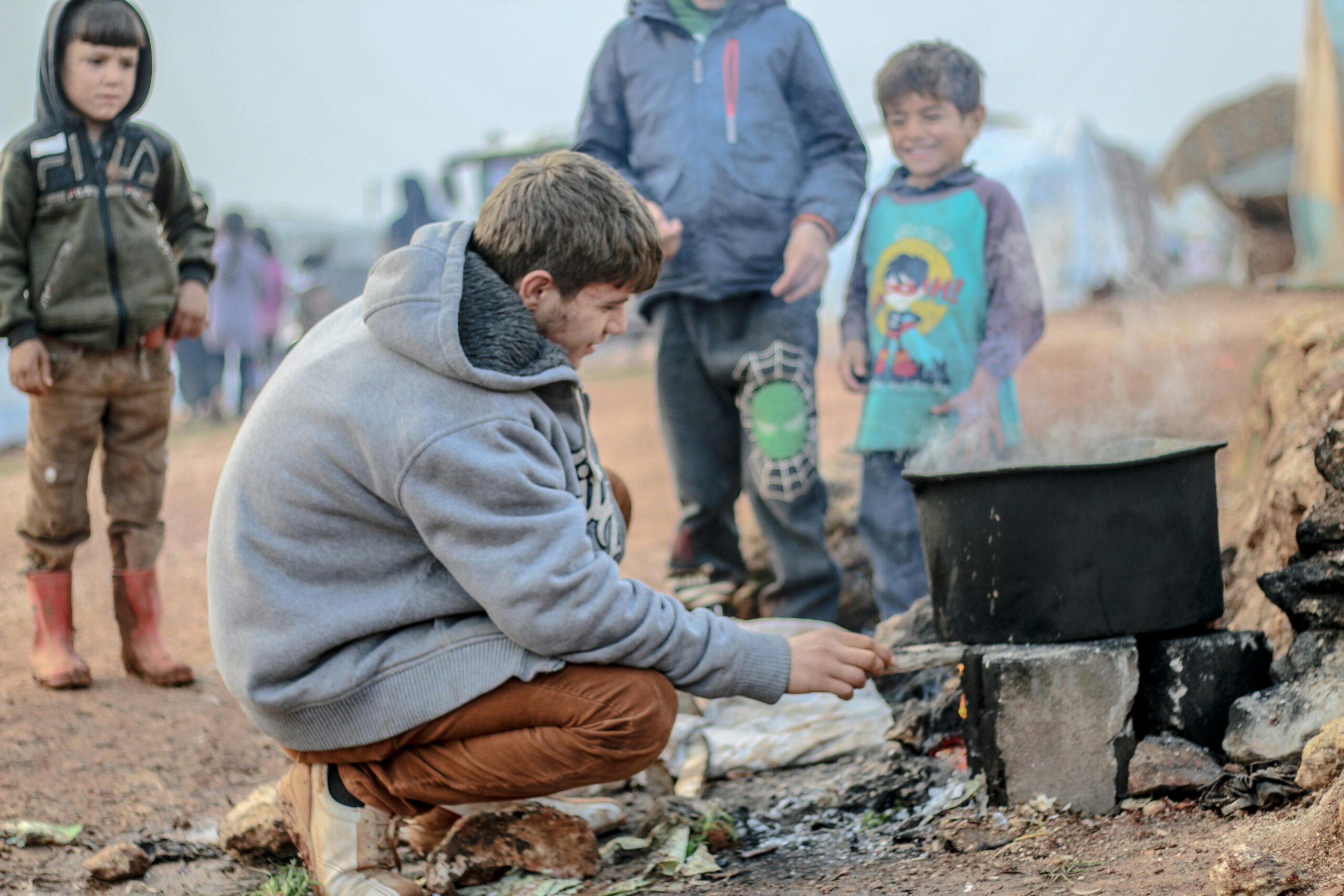Right now, about 117 million people have been forcibly displaced from their homes by conflict, war, persecution, and human rights violations. Of this total, about 43 million people are considered refugees, meaning they have been forced to flee across international borders, away from their home country.
These individuals and families are forced to make a desperate journey. They flee everything they’ve known to find safety, shelter, food, clean water, education, healthcare, and jobs. In short, they seek a better life for themselves and their families, but this is often difficult to find.
In the U.S., for example, refugees must receive official status as such—it’s not a simple matter of showing up at the border and claiming to be a refugee. The process can take months or longer and involves extensive vetting. The U.S. also limits the numbers of refugees it will accept each year. Even after they are allowed into the U.S., refugees still face the daunting prospect of rebuilding their lives in a new, unfamiliar country where they might not even speak the language.
Refugee resettlement programs offer new beginnings to those fleeing dire circumstances. Islamic Relief USA (IRUSA) is a leader in these efforts. IRUSA works tirelessly to help refugees integrate into their new communities and build better lives.
IRUSA’s Refugee Resettlement Program
IRUSA’s refugee resettlement program is dedicated to helping newly arrived refugees navigate and integrate into their new environments within their first 90 days in the United States. The program is designed to provide refugee families with comprehensive support during their initial adjustment period.
Upon arrival, each refugee family is assigned a caseworker or case manager responsible for managing a range of essential services. This includes picking families up from the airport, setting them up in fully furnished homes, and helping with benefits enrollment like food stamps and healthcare services. Additionally, refugees are provided with English language classes to help them better communicate and integrate into their new communities.
Between 2022 and 2023, IRUSA worked with organizations like Radiant Hands, DAH, and HRRG to resettle 76 people from Afghanistan, Burma, Congo, Nicaragua, and Syria. Since the beginning of 2023, these partnerships have allowed for the successful resettlement of 269 people, and IRUSA has set a goal to resettle a total of 695 people.
Recent Developments in the U.S. Refugee Resettlement
The U.S. refugee resettlement program ran into significant challenges in recent years, with major reductions in the number of refugees accepted annually during the Trump administration. In 2020, the cap on refugees was reduced to 18,000, a sharp decline from previous years. This decrease raised concerns about the program’s ability to adequately address the needs of those fleeing persecution.
However, recent developments have sparked newfound optimism. The current administration has set an ambitious goal of accepting 125,000 refugees by the end of the fiscal year 2024. With around 150 refugee settlement offices now operating nationwide, the program is on track to meet this target. The New York Times reported that over 40,000 refugees arrived in the U.S. during the first five months of the fiscal year, which is the highest number in seven years for a similar period.
It’s important to differentiate between refugees and asylum seekers. Refugees undergo a rigorous screening process, including medical and security vetting, before being admitted into the U.S. In contrast, asylum seekers often face a lengthy wait due to backlogs in immigration courts. The federal government supports refugees through funding for cultural orientation classes, job training, and local group connections.
The situation in Afghanistan represents one of the most severe humanitarian crises in history. Over four decades of conflict and instability have left around 24 million Afghans in urgent need of humanitarian aid, with more than 6 million displaced. Women and children account for 80% of the newly displaced population.
In response to this crisis, IRUSA has committed $2.1 million to support both families within Afghanistan and the 83,000 Afghan refugees who have recently arrived in the U.S. The organization is working through its regional offices in Kabul, Balkh, Herat, and Nangarhar to provide essential aid, including food packages, hygiene kits, household items, and emergency equipment like family-sized tents.
For newly arrived Afghan refugees in the U.S., IRUSA offers comprehensive support to facilitate their transition. This includes greeting orientations, transportation from the airport, and interpreters upon arrival. Refugees receive assistance with cash, support with housing and legal matters, as well as hygiene kits, food boxes, mental health support, and medical case management. These services are designed to help Afghan families adapt to their new lives and build a stable foundation for their future.
Partnership with the International Rescue Committee (IRC)
IRUSA recently bolstered its refugee resettlement efforts with a three-year agreement with the International Rescue Committee (IRC). Approved by the State Department’s Federal Bureau of Population, Refugees, and Migration, this partnership could significantly improve IRUSA’s capacity to resettle refugees.
Under this agreement, IRUSA pledged to work with its network of refugee service organizations to establish up to 10 resettlement sites in the first fiscal year. The goal is to settle 750 refugees within the first year and expand to 21 IRUSA resettlement offices by the end of the third year. Additionally, IRUSA plans to apply for standalone refugee resettlement agency status by the end of the agreement.
In fiscal year 2022, IRUSA made notable progress in refugee resettlement. With the assistance of partners like Church World Service, IRUSA helped resettle 168 refugees and provided $632,830 to 27 partner organizations for various forms of aid. These services include rental assistance, ESL courses, and financial support.
Looking ahead, IRUSA aims to continue expanding its resettlement efforts and achieving its goals. Community involvement plays a major role in the success of these programs. Supporting IRUSA through advocacy, donations, and volunteer work helps ensure that refugees receive the assistance they need to rebuild their lives.
